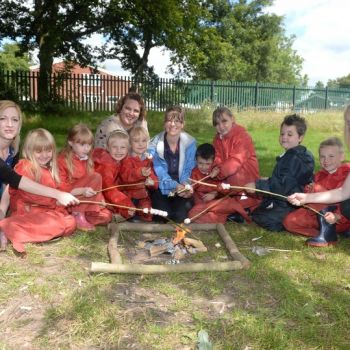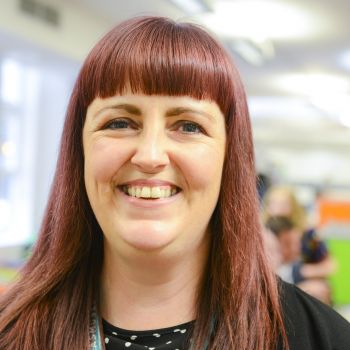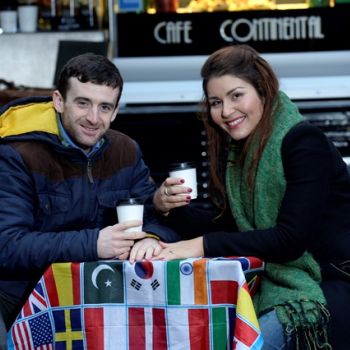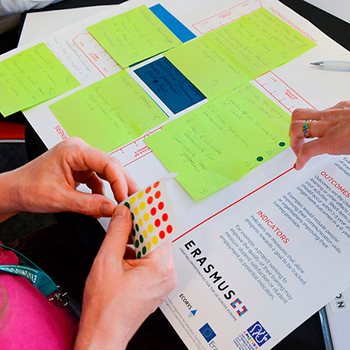Learning Networks - Measuring Impact

At the last event
24 May 2017
At the last Learning Networks event, the Measuring Impact workshop looked at putting their skills into practice with the Impact+ Exercise.
You can download the notes from the meeting (134 KB). You can also view the National Agency presentation on best practices and resources for dissemination on Slideshare.
22 November 2016
The winter Measuring Impact workshop looked at putting their skills into practice with the Impact+ Exercise.
You can download the notes from the meeting (552 KB), written by workshop facilitator Sian Richardson. Take a look at the feedback graphic from the last workshop.
How does the topic relate to Erasmus+?
The Erasmus+ programme has a total budget of €14.8 billion for supporting projects in the fields of education, training, youth and sport for the seven years of its operation (2014-2020). Since the global economic crisis in 2008, public sector finances in Member States across Europe have been under pressure. In this context, the importance of demonstrating the purpose and value for money of public spending is vital.
In the Erasmus+ Programme Guide the European Commission defines impact as “the effect that the activity carried out and its results have on people, practices, organisations and systems” Page 310. Impact is closely linked to dissemination and exploitation of results (which are seen as key to achieving impact) and the sustainability of project results. The Programme Guide contains a whole section on dissemination and exploitation starting on page 309.
In the UK, the Erasmus+ National Agency will be assessing the impact of the programme against a ‘Logic Model’ - a logic model provides a way to illustrate the impact of policy interventions. It shows how the planned activity responds to needs, generating a series of outputs which in turn should lead to a range of outcomes (or changes) for those involved and ultimately contributing to wider economic and social impacts (or longer-term outcomes). We aim to test these logic flows through research and evaluation to assess whether the intervention (Erasmus+) is performing as intended and to what extent. Full information on our approach to impact assessment can be found on our Impact page.
UK research and evaluation activities will include:
- Analysis of programme management data;
- Surveys of project promoters and individual beneficiaries;
- Case studies of individuals, institutions and projects; and
- Qualitative research projects on key themes.
We have developed our own Impact+ Exercise to help applicants and projects think about their impact. You can find it on our resources page along with other useful documents and links.
The UK National Agency also has a webpage dedicated to resources in this topic area where you can find:
- examples of logic models and how to create them;
- indicator frameworks and tools;
- relevant research and evaluation reports;
- a video guide and further resources relating to the Impact+ Exercise; and
- links to organisations dedicated to evaluation and impact assessment.
An evaluation of the Erasmus+ programme across all participating countries is planned by the European Commission and is part of the programme’s legal base (see article 21).
Individual projects are required to disseminate and exploit their projects results and the Erasmus+ UK Logic Model could provide a framework to help.
There are many projects already achieving impact across the different fields of education, training and youth. Results from across all participating countries can be found in the European Commission’s Project Results Platform. The platform allows you to search by key words such as inclusion or equal opportunities and includes:
- A project database including links & summaries;
- A database of project results giving access to learning outcomes;
- The showcasing of good practices and success stories.
You can also find below some case studies of UK projects working in this area. Case studies will be added on an ongoing basis. If you are working in this topic area, why not send us your own case study?
Join the group

Learning Networks meet twice a year in different locations across the UK. Take a look at our events page for detailed information about the last event. Would you like to join the Measuring Impact group? Sign-up to our mailing list and we will contact you to let you know when the next event is taking place!





